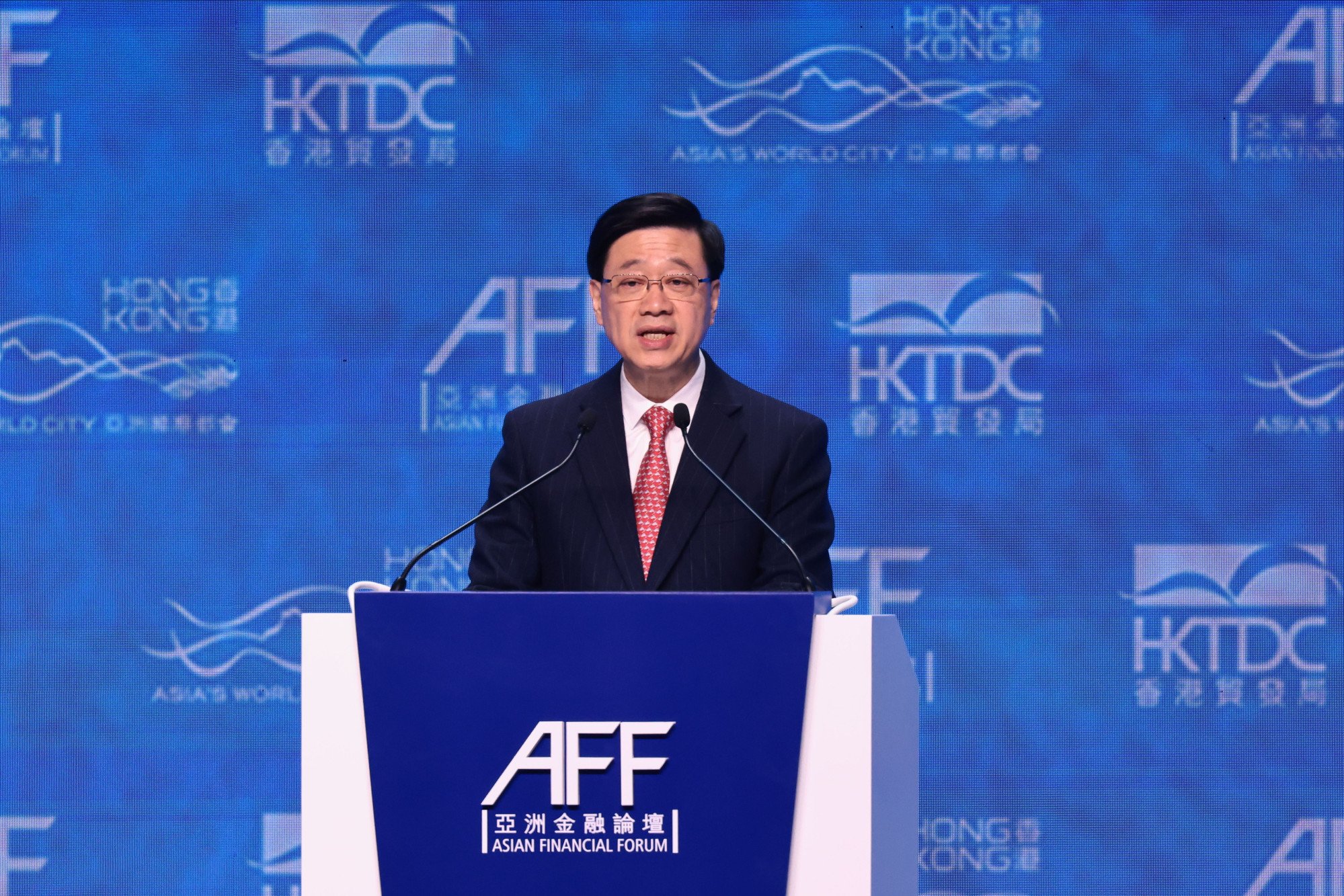
24 Jan China to double down on support for Hong Kong as nation’s international financial hub for bonds, green finance, minister says at AFF
Beijing’s financial authorities will double down for their support of Hong Kong as China’s global financial centre, opening the doors for more bonds and green financing instruments to be issued and traded in the city, the bank regulator said.
The mainland branches of banks domiciled in Hong Kong and Macau will be allowed a broader business scope, including the issuance of bank cards, according to Li Yunze, Minister of the National Financial Regulatory Administration (NFRA).
Financial firms from the two special administrative regions will also be able to enjoy a lower qualification threshold for them to invest in mainland insurers, he said.
“Hong Kong is a well-known international financial centre with a liquid financial market, big talent pool, and [sound] legal environment,” Li said during the Asian Financial Forum (AFF) conference organised by the Trade & Development Council (HKTDC). “The central government supports the development of Hong Kong as a connector between the mainland and the world.”

Chinese banks and insurers will be encouraged to issue yuan-denominated bonds and other financial instruments related to green financing in Hong Kong, he said.
“These issuances will further support the bond market of Hong Kong and its role as an offshore yuan trading centre,” he said.
Will Greater Bay Area solidify Hong Kong’s role as a fintech hub?
Will Greater Bay Area solidify Hong Kong’s role as a fintech hub?
The overture appeared to have resonated with Egypt’s finance minister Mohamed Maait, who said the country is exploring opportunities to issue green bonds and other instruments in sustainable finance in multiple currencies.
Egypt, the host nation for the 2022 United Nations Climate Change Conference (COP27), could well consider issuing dim sum bonds, which are yuan-denominated bonds issued in Hong Kong, said Christopher Hui, the Secretary for Financial Services and the Treasury. Hui hosted a panel discussion with financial officials from Thailand, Indonesia, Egypt and Croatia, offering the city as the destination for them to raise capital.
With the theme ‘Multilateral Cooperation for a Shared Tomorrow”, the 17th AFF has attracted more than 3,000 attendees over its two-day programme.
“Hong Kong will be at the heart of the continuing eastward shift of economic prospects,” the city’s chief executive John Lee Ka-chiu said in his welcoming speech to kick off the two-day event. “We are the ‘superconnector’, as well as the ‘super value-adder’ bringing East and West together for rewarding opportunities long down this 21st century road of promise.”

China will continue to open its economy and financial system to global investors, said Li, a veteran banker who was nominated last year as the first minister to run the NFRA. The new body is an enlarged version of the China Banking and Insurance Regulatory Commission, the regulatory body for the country’s banks and insurers.
China’s various transborder investment channels, the so-called Connect schemes, will continue to be enhanced and enlarged for more capital to flow from abroad via Hong Kong into the mainland’s bonds, stocks and derivatives, he said. Similarly, mainland capital will be allowed to flow into international issues via Hong Kong.
“The open door policy is a long-term state policy for China, and the driving force for the financial markets in the country,” Li said. “We will support more foreign firms investing in China and will offer them a good business environment, with investor protection. The doors of the financial sector will continue to widen.”
